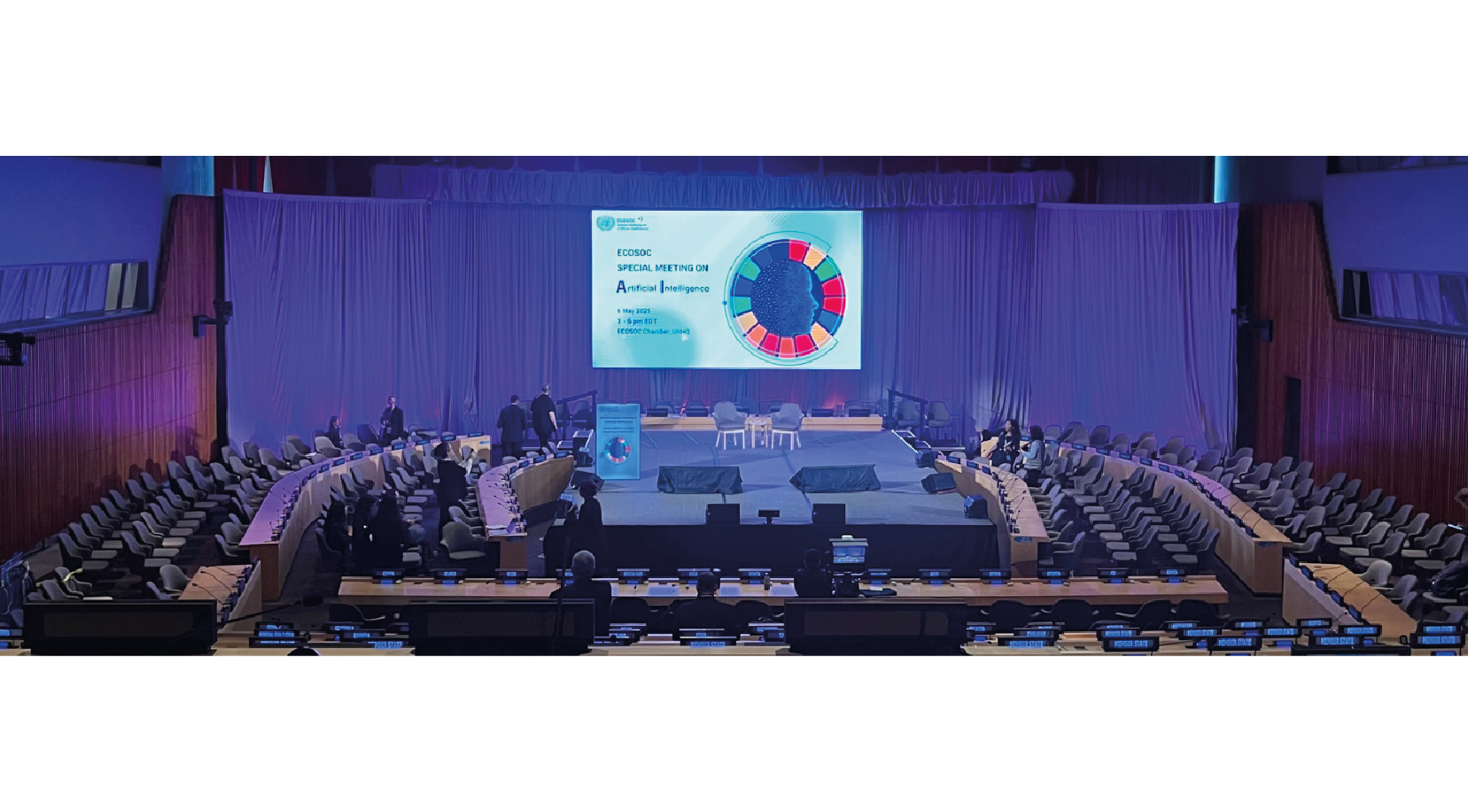Iulia-Elena Cazan
(ZENIT News – Center for Family and Human Rights / New York, 05.23.2025).- Under the guise of tackling “misinformation,” UN agencies are using AI to spy on adolescent attitudes toward contraception, abortion access, and sexual identity in the global south and target them with information that will change their views on these topics.
From 2022 to 2023, UNFPA used an AI-based Early Warning System (EWS) in Zambia, Rwanda, and Namibia to obtain “real-time information” on “dialogues [and] social media behavior” of adolescents about SRHR.
UNFPA then leveraged AI to create a response to “the root causes and/or prevent further escalation of the early signs of opposition/backlash against [adolescent] SRH, “change “attitudes among the target population group,” and ensure young people “adopt positive behavioral choices.”
The UNFPA ISAY platform in Eastern and Southern Africa and the BiDaFPInAs platform in the Philippines were similarly used to “monitor and analyze public dialogues and social media trends related to adolescent sexual and reproductive health and rights.”
UNFPA also invested in AI bots around the world, including in India and Kenya, that answer adolescents’ questions about sexuality and family planning without parental consent.
The “Just Ask! Khulke Poocho! AI Chatbot” in India aims at fostering “interest in often misunderstood or stigmatized topics such as puberty, menstruation, sexual and gender identity, safe sex, and contraception.”
Over 2,000 participants joined the two-day 2025 UN Science, Technology, and Innovation (STI) Forum in New York that featured talks on the intersection of technology, human rights, and development.
Several panelists, including representatives from UNESCO, the government of Australia, and the President of the UN General Assembly, asked the UN to enhance its role in AI governance, including addressing “misinformation” and “disinformation” online.
A 2023 report on UN activities on Artificial Intelligence shows that the UN has already carried out hundreds of AI projects, including some tackling “misinformation” about adolescents’ sexual and reproductive health and rights (SRHR).
UN agencies such as the United Nations Population Fund (UNFPA) promote abortion, declare a non-binary understanding of gender, and advocate for the inclusion of sexuality education in school curricula. UNFPA labels opposition to these efforts as “misinformation” and “backsliding on human rights.”
Earlier this year, the Trump administration released an executive order criticizing the Biden administration for its “misinformation” and “disinformation” campaigns that resulted in mass censorship. Meta also distanced itself from countering misinformation through fact-checkers due to its vague definition and high susceptibility to ideological bias.
Despite this public reckoning against online “misinformation campaigns,” the UN human rights chief Volker Türk pledged to continue to support these efforts, saying they are essential to protect the “dignity of all. ”
In a similar vein, the UN Secretary-General António Guterres recommended that member states engage with disinformation fact-checkers “in a multi-stakeholder manner, as cooperation between Governments, civil society organizations, companies, and other stakeholders.”
Guterres also references a joint TikTok initiative by the UN Children’s Fund (UNICEF) and the ONE campaign on addressing “disinformation about COVID-19 vaccines on social media” as a positive example of anti-disinformation work.
The UN Governing AI for Humanity report flags disinformation as a top risk and recommends that, beyond tackling deepfakes, policymakers also implement “rapid notice and take-down procedures for content that is likely to deceive in a way that causes harm or societal divisions…”
The UN Principles for Information Integrity ask stakeholders to “cooperate with independent, third-party organizations to conduct and make public ongoing human rights risk assessments.”
Thank you for reading our content. If you would like to receive ZENIT’s daily e-mail news, you can subscribe for free through this link.



